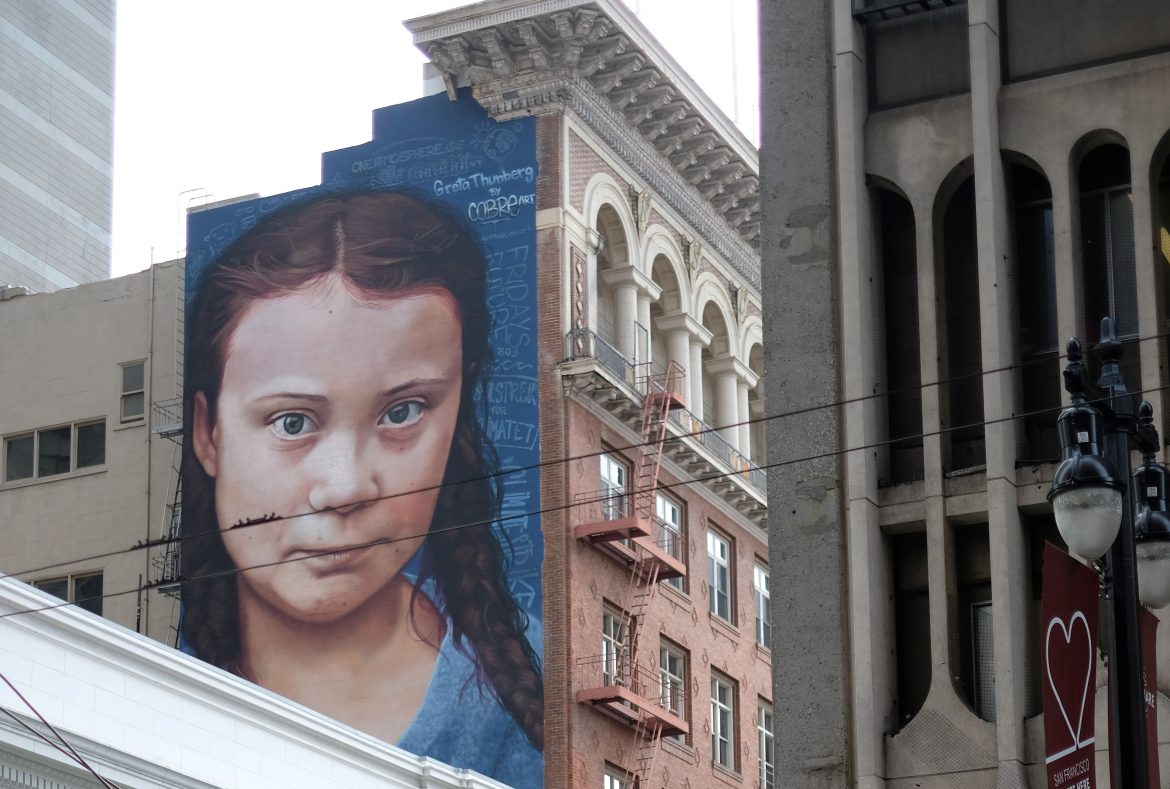Greta Thunberg, creator of the student environmental movement Fridays For Future, has been tirelessly campaigning to protect the planet from the dangers of Global Climate Change by organizing student strikes all over the world. She tried to show her courage in a recent interview with Vogue Magazine by targeting the same sector that serves as the magazine’s main focus: the fashion industry. Thunberg claimed in the interview that she has avoided buying new clothing and has tried to compensate by buying old goods. She further said that the clothing industry is damaging to the environment, emits far too much CO2 in comparison to other industries known to generate a lot of CO2, and abuses workers all over the world.
Thunberg seems unaware of the reality that what she is proposing, notably reduced clothing production, will hurt the same people she believes she is helping. Frederic Bastiat argued in his article That Which Is Seen, and That Which Is Not Seen, that government actions concerning this issue would have an unanticipated influence on the economy. In the same article, he said, “There is only one difference between a bad economist and a good one: the bad economist confines himself to the visible effect; the good economist takes into account both the effect that can be seen, and those effects that must be unseen.”
Let us assume, for argument’s sake, that Thunberg is successful in getting a law passed that limits the amount of clothing produced globally, or that she is successful in convincing the fashion industry to voluntarily reduce their overall production by a significant amount.
According to Bastiat, the “seen” effects of such policies would be that people in the developed world would purchase their clothing from locally produced factories with high environmental standards. This would be more expensive, causing consumers to buy less while attempting to purchase more second hand clothing. Let us now evaluate and determine the “unseen” effects for the developing world, where 60 percent of clothing is produced.
Agricultural labour is the most common alternative to textile manufacturing employment for low-skilled employees in most developing countries. According to Nobel Laureate economist Sir Arthur Lewis, the developing world has two kinds of economies: traditional or agricultural economies, and industrial economies. In his hypothesis, now known as the Lewis Model, he argued that the agricultural sector needs limited talents from a large number of workers for little money. The industrial sector, on the other hand, offers employees roles with technology. This increases productivity, allows them to learn new skills, and is better paid than an agricultural job. Lewis argues it would be preferable if more of the large number of agricultural workers were transferred to the manufacturing industry, where they would be taught skills, become more productive, and earn much more money.
Bangladesh is a good case study based on the Lewis Model. The country has gained significant advantages from this change, shifting workers from agriculture to manufacturing, especially in the garment and textile industries. Bangladesh’s fashion industry is now worth $34 billion, and the country is the world’s second-largest clothing producer. Has this helped the employees? Bangladesh’s GDP per capita was $510 USD in 2015, this is expected to reach $1280 USD by the end of this year as the country’s economy grows. Workers in Bangladesh now perform in tough circumstances, and there have been numerous issues with their working conditions, but in contrast to the job they would carry out in the agricultural sector, their employment is considerably less challenging and more profitable.
If we allow Thunberg to succeed, and the textile industry significantly reduces its production, the developed world may not be affected significantly because it has transitioned more to a service economy. However, countries like Bangladesh, which have benefited so much from the clothing industry, will regress, and the alternative for them would be working in agriculture again. This describes exactly one of the many unseen effects highlighted by Frederic Bastiat in his essay.
Thunberg is promoting a policy that would be harmful to the people she claims to care about. Climate change must be addressed, but not at the expense of Bangladeshi or other developing-country workers who have benefited from globalization and capitalism. Clearly, Thunberg has no intention of harming the people of the developing world; it is obvious that she sincerely wants to help them. However, policies such as the one she is presenting, regardless of state intervention or, in some cases, public pressure campaigns aimed at businesses, can have unintended consequences that outweigh the potential benefits. Instead of reducing clothes production, businesses should be encouraged to utilize more green technology in their manufacturing processes. This would not only promote other technology industries within that economy, but will be more beneficial to the environment and maintain the living standards of the workers.
The above article was originally published in German here.
